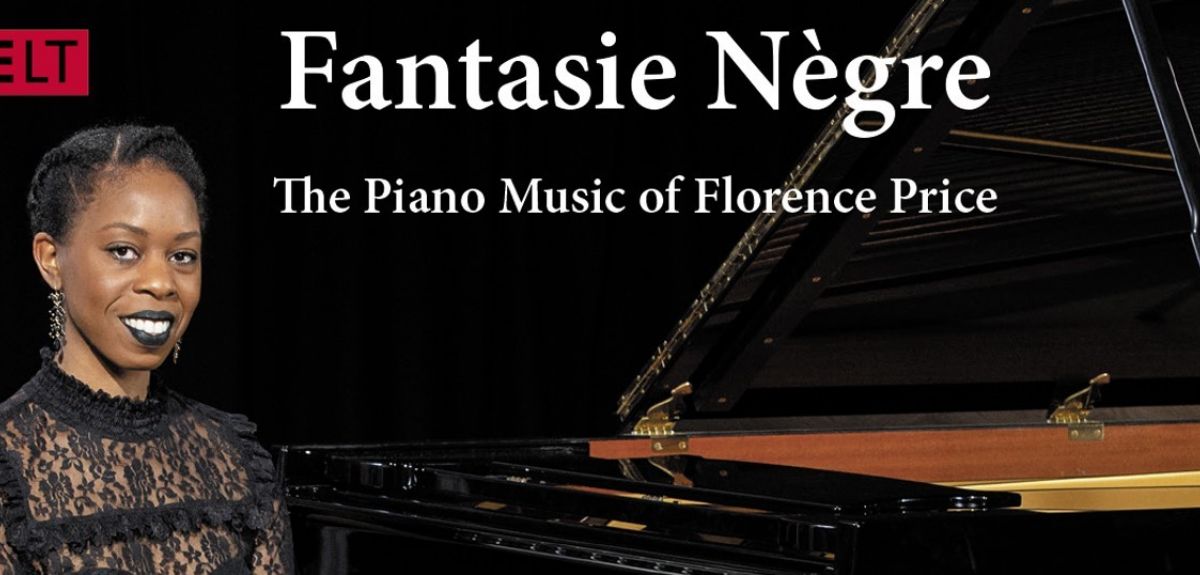
Celebrating the extraordinary legacy of the women composers of the Black Chicago Renaissance
Music is as an important point of connection. Listening to music can spark new ideas, remind us of particular moments in the past - and shared experiences.
In the context of International Women’s Day, this event also reminds us to seek out the women who have been creative leaders in the past, and inspires us to better support and recognise such people in the future
To mark International Women’s Day, Lincoln College and Oxford’s humanities research centre, TORCH, are hosting a lecture-recital with Dr Samantha Ege, as she traces the vibrant creative network formed by black women composers in Chicago in the early 20th century.
The lecture-recital will paint a picture of a vibrant artistic community in Chicago between the 1930s and 1950s, with black women composers as its cornerstones
International Women’s Day is a moment of celebration and reflection. This year’s theme ‘Choose to Challenge’ asks us to challenge gender bias and inequality wherever we may find it, and to celebrate women’s achievements where they have previously been under recognised.
With The Black Chicago Renaissance Women: Lives & Legacies in Music, Dr Ege blends celebration and education, bringing to our attention the individual stories of women of the past - from the creative community space formed by the home of American composer Margaret Bonds to the ransacking of the majority of Nora Holt’s compositions. At the same time, the lecture is filled with music, the voices of these women brought into the current moment to be appreciated.
Dr Ege will play piano compositions by each of the four composers she discusses, including Florence Price’s Fantasie Nègre in F Minor, a piece previously thought to be incomplete, and reconstructed on Dr Ege’s new album, Fantasie Nègre: The Piano Music of Florence Price. One of Nora Holt’s two surviving compositions, the only ones remaining from the 200 she wrote, will also feature.
Through these pieces, the lecture-recital will paint a picture of a vibrant artistic community in Chicago between the 1930s and 1950s, with black women composers as its cornerstones. The Black Chicago Renaissance was a movement encompassing artists of all description.
These communities displayed strong models of black female leadership; they opened the doors for upcoming generations of black women to thrive as composers, performers, music entrepreneurs, and more
Dr Samantha Ege
Dr Ege says, ‘Though rightfully celebrated as a literary movement, in which writers such as Lorraine Hansberry, Gwendolyn Brooks, and Richard Wright voiced critical reflections of life on Chicago’s south side through their plays, poems, and novels, the Black Chicago Renaissance in fact comprised numerous creative threads.
‘Music-making abounded, birthing blues, jazz, and gospel innovations that would go on to transform American music. Black classical communities in Chicago similarly restructured the fabric of musical life in the United States. These communities displayed strong models of black female leadership; they opened the doors for upcoming generations of black women to thrive as composers, performers, music entrepreneurs, and more.’
This story of creativity and community feels particularly relevant in the current moment, as we have all been uprooted from our usual communities and as many creative people, particularly performers, have found their activities curbed. In the context of International Women’s Day, this event also reminds us to seek out the women who have been creative leaders in the past, and inspires us to better support and recognise such people in the future.
Dr Ege is deeply interested in exploring women as part of a creative network. She elaborates, ‘Florence Price was the first black woman composer to gain national recognition in the United States. It is easy to marvel at such an accomplishment in the era of Jim Crow America. But in doing so, we run the risk of overlooking the community to which she belonged, where many black women shared her ambition, passion, and talent.
‘In valuing women’s narratives upon their entry into historically male spaces, we end up viewing their lives narrowly and therefore incompletely. International Women’s Day commemorates a global history of women’s socio-political organising, protest, and triumph. It is a history shaped by diverse communities and diverse womanhoods. And this is what our event recognises.’
International Women’s Day commemorates a global history of women’s socio-political organising, protest, and triumph. It is a history shaped by diverse communities and diverse womanhoods. And this is what our event recognises
Dr Ege
Whether you are hoping to draw inspiration from the past, learn more about the history of this important movement, or simply appreciate some beautiful music, this lecture-recital provides an excellent opportunity to reflect on the legacy of the women composers of the Black Chicago Renaissance.
You can watch The Black Chicago Renaissance Women: Lives & Legacies in Music from 5pm to 6pm on Monday 8 March 2021 via the TORCH YouTube page, as part of the Humanities Cultural Programme and Lincoln College, Oxford.
You can find out more about Dr Samantha Ege’s work on her website.